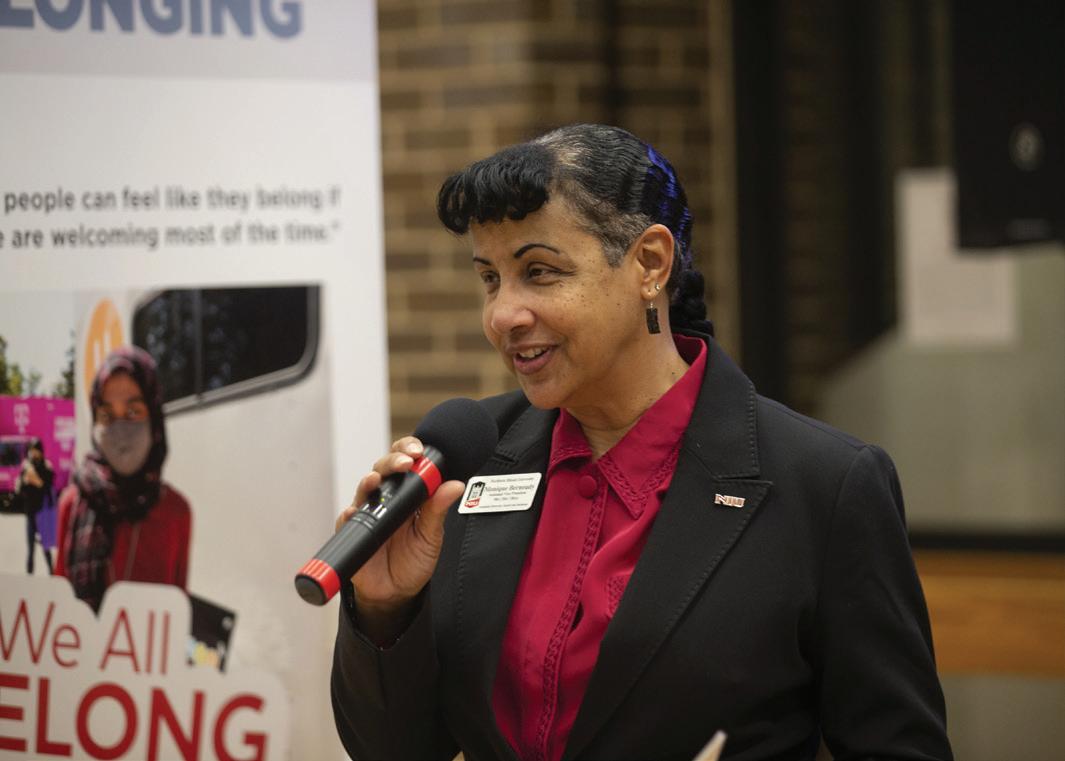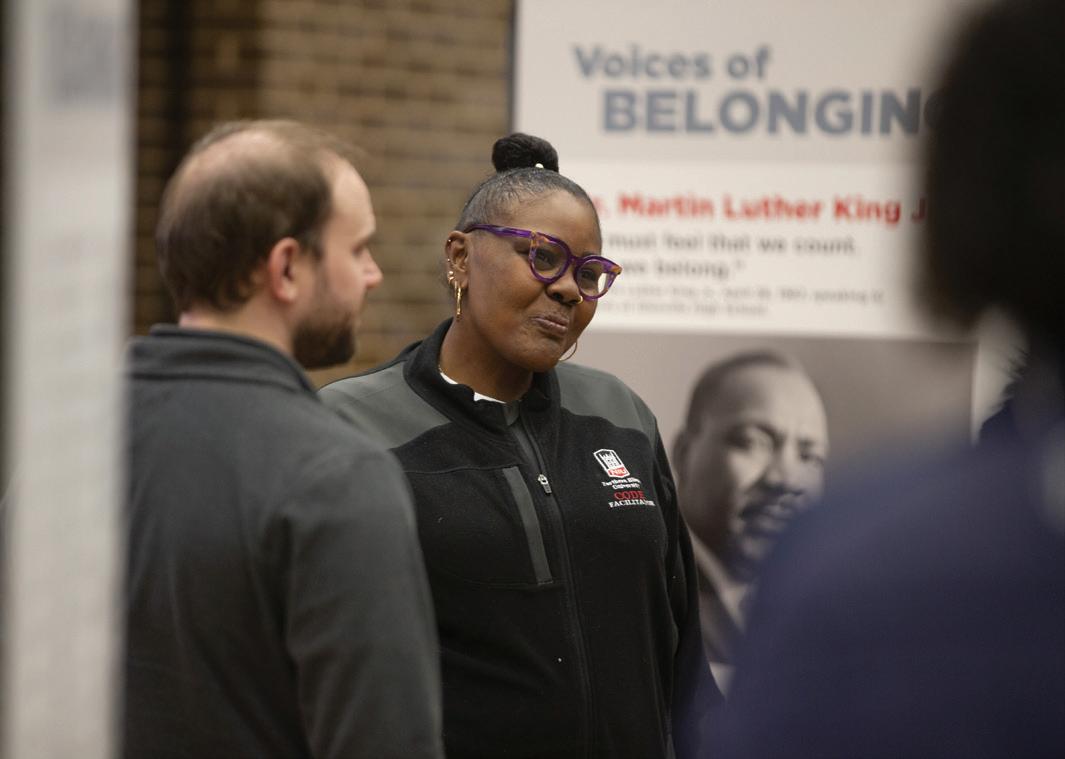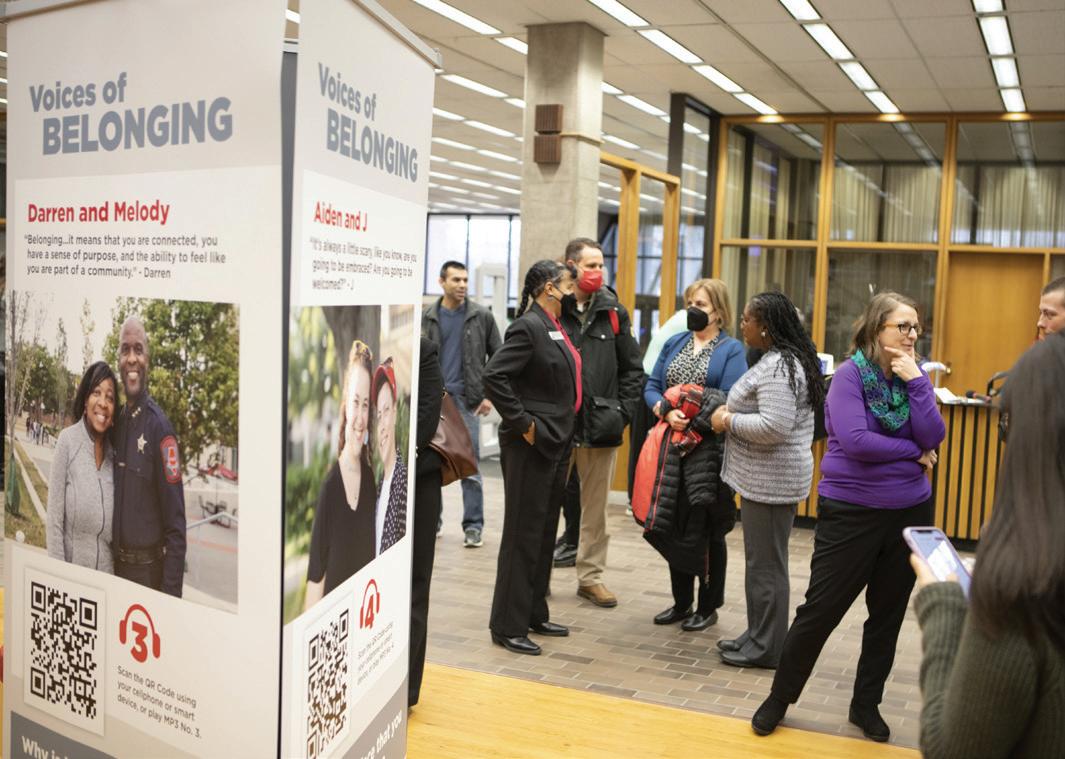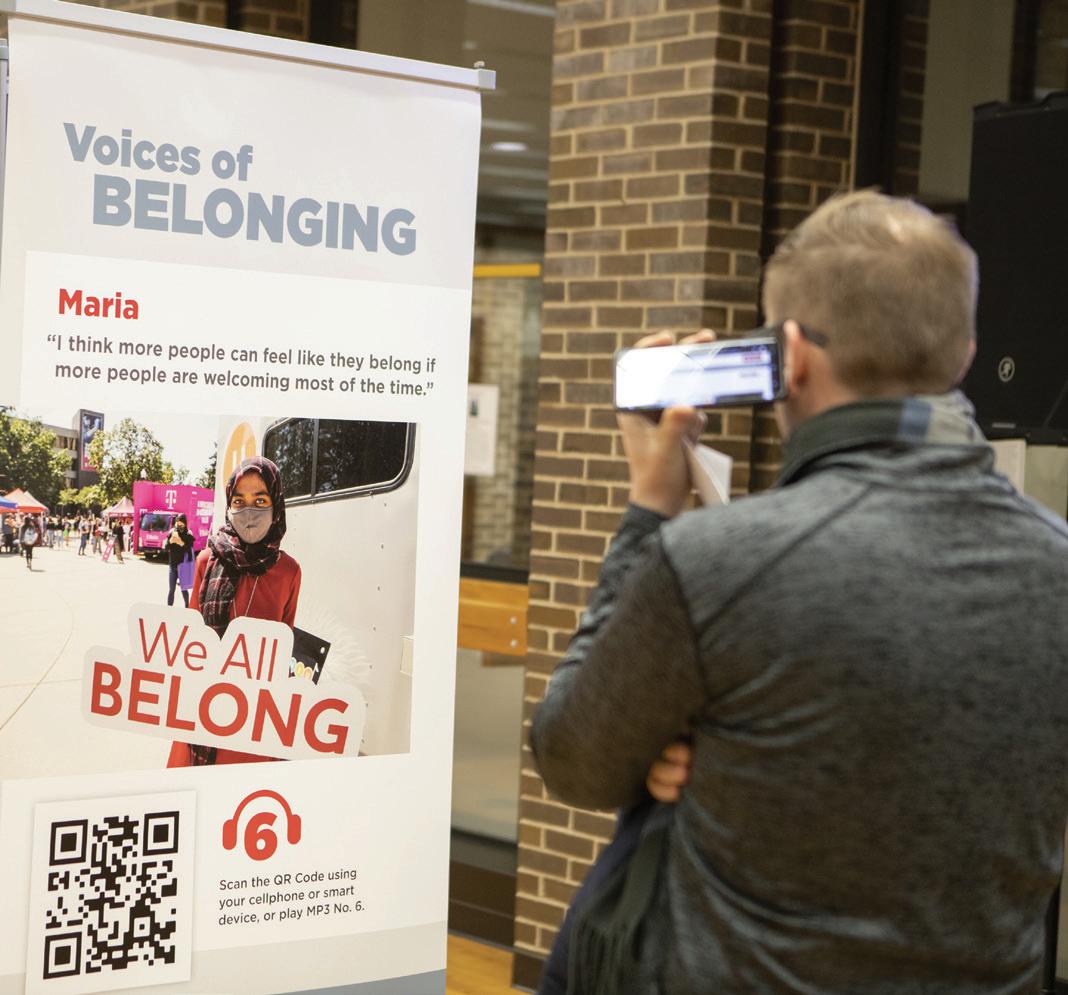
7 minute read
How a conversation inspired a community
BELONGING
How a Conversation Inspired a Community
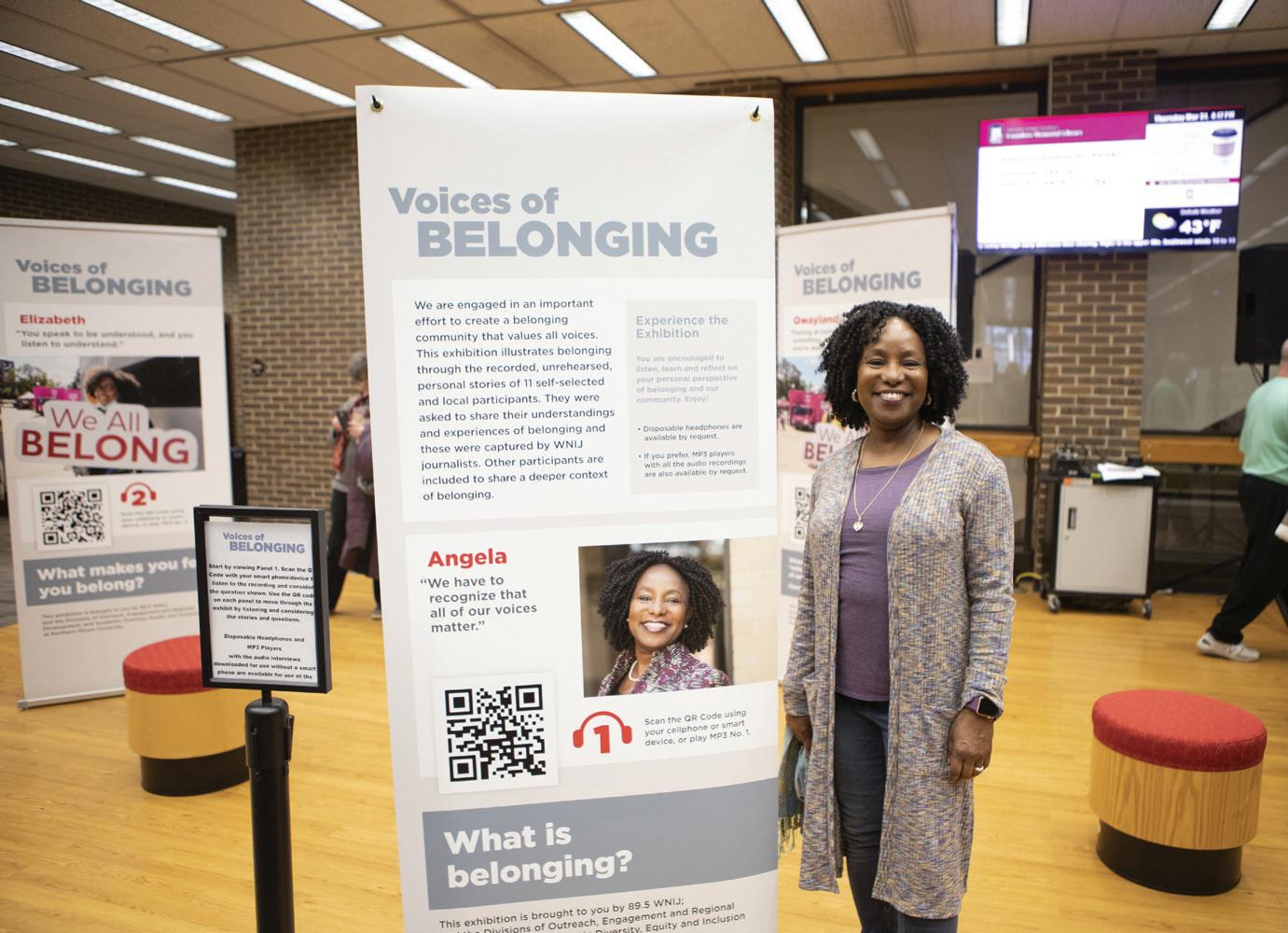
elonging and othering are concepts rarely explored in day-to-day conversation. Now, they have been brought to the forefront of the community in reflection of incidents that have changed the world in the last couple of years. Northern Illinois University facilitated a conversation that was planned with Dr. John A. Powell, a national expert on belonging and othering, that has changed the course of the community. Director of Community Promotion Jennifer Groce discusses how one community conversation evolved into a powerful movement and art exhibits that are delivered through three senses. “We really look at it as a commitment that we as a global community can make to create a culture of belonging in our communities, and this began before George Floyd was murdered and before any of that took place,” Groce said. “DeKalb had some of its own incidences and challenges in the community, on campus and other parts of the area. An opportunity was presented to us to partner with our friends in Rockford and the Northern Illinois Center for Nonprofit Excellence. They had heard Dr. Powell speak and we collaborated with them. We were going to bring him here as they have identified belonging as an important component for our community.” After meeting with his team, leaders from the university and the city sat down to decide if they wanted to work together to host a community conversation centralized around the concept of belonging. “That answer was an emphatic yes,” Groce said. “What followed was an interesting grassroots process.” After COVID-19 swept the globe, the group was forced to meet remotely.
BELONGING inDeKalb By: Kelley White
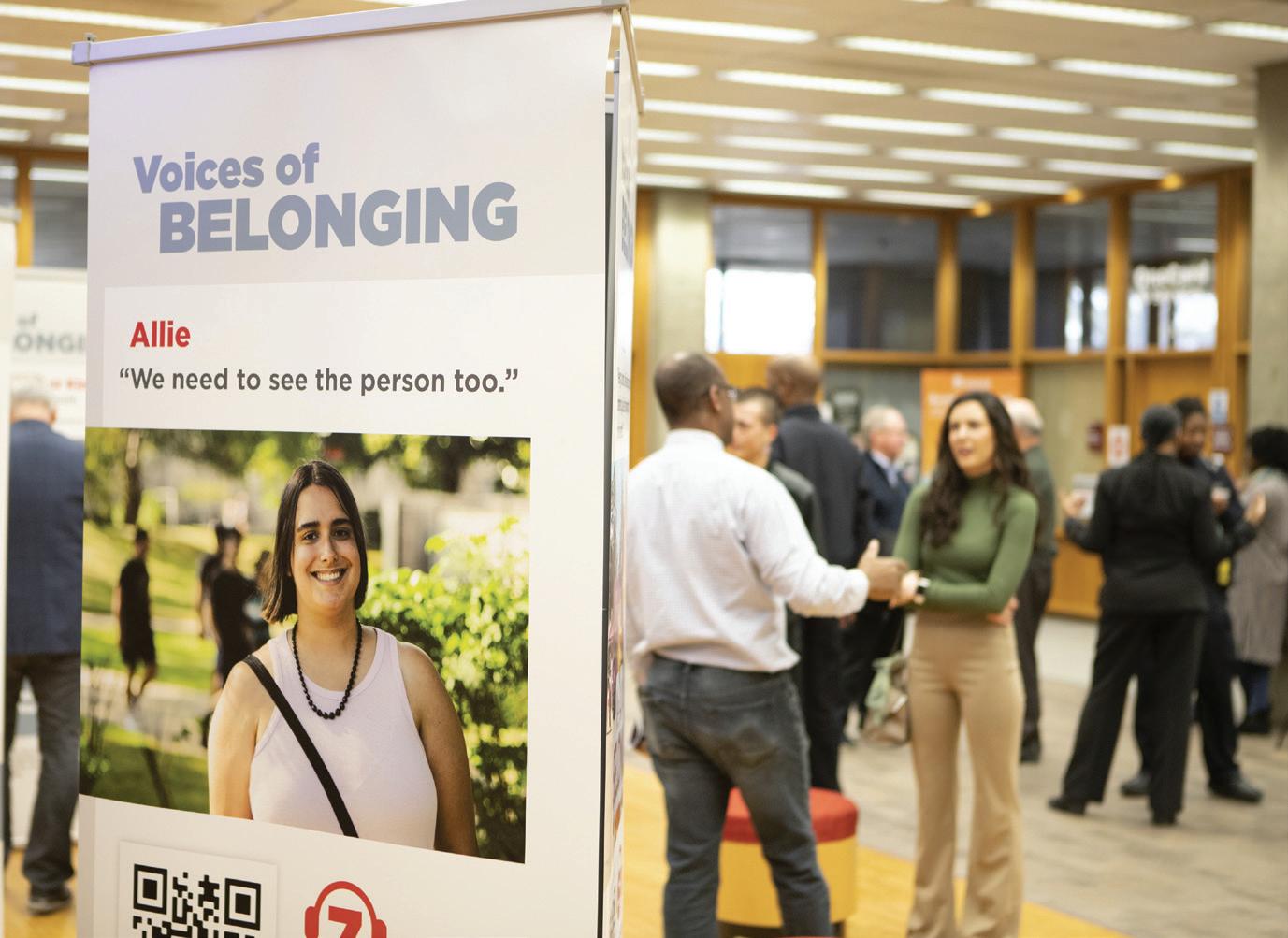
“Over 500 people attended from start to finish, and it was a two-hour conversation where about 10 representatives from the community asked questions and Dr. Powell answered,” Groce said. “He laid out what belonging means, the impacts of othering and breaking in the community, and specifically about issues in DeKalb. The conversation resonated across our community in ways we didn’t expect.” Groce, along with her colleague Monique Bernoudy, immediately began working hard for the cause, knowing how important the movement is. “We were kind of the worker bees,” Groce said. “We’re very committed and willing to do all those little details.” After the initial conversation, everyone decided to return the next day for a remote meeting to discuss and recap their thoughts. Groce said they realized a grant was available to support initiatives that focus on diversity, equity and inclusion; however, the grant application deadline was the next day. The group immediately went to work to submit their idea to the grant committee. “We wrote the grant to fund a formation council for the community as well as some community arts projects in the meantime that would acknowledge and explore issues around belonging in our community,” Groce said. “The DeKalb County History Center and the Elwood Historical Museum created Arts and Action. It is such an incredible installation that I am so happy will continue.” Next, the committee introduced Faces of Belonging, a photo project that promotes belonging among those who live, work and study in DeKalb. The project features photographs of diverse people of DeKalb and interview excerpts that share their stories and what it means to belong in the city.
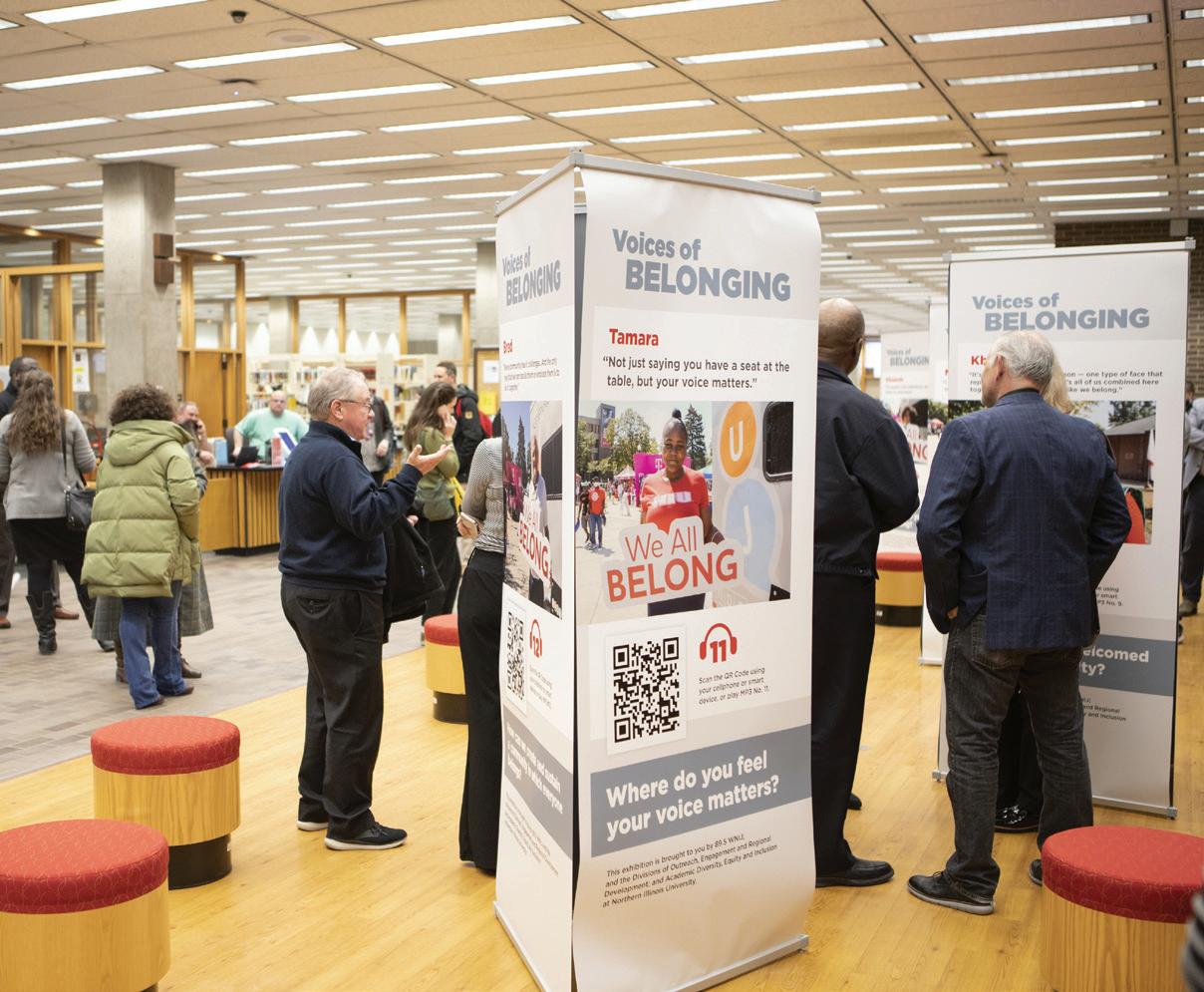
BELONGING Faces of
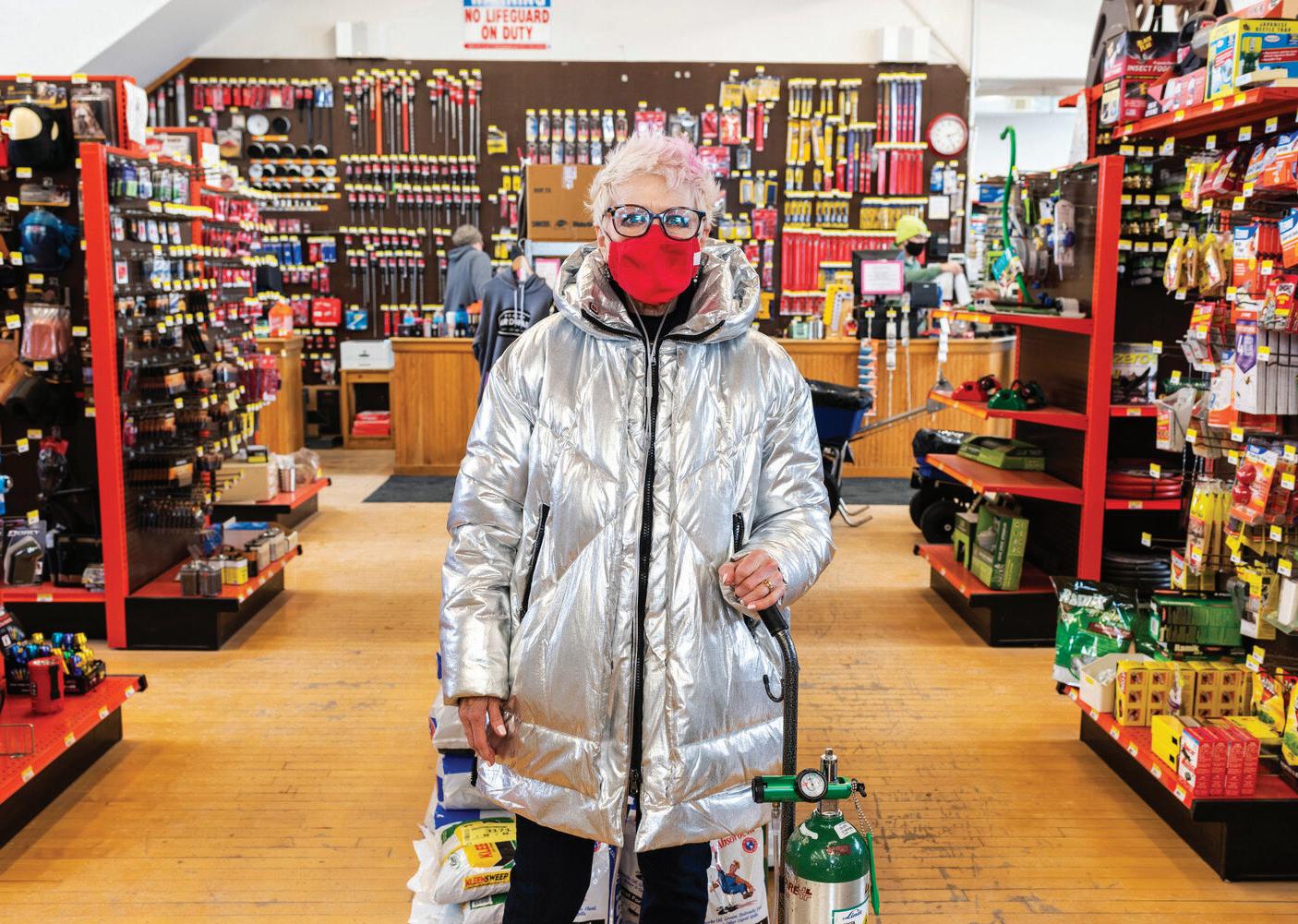
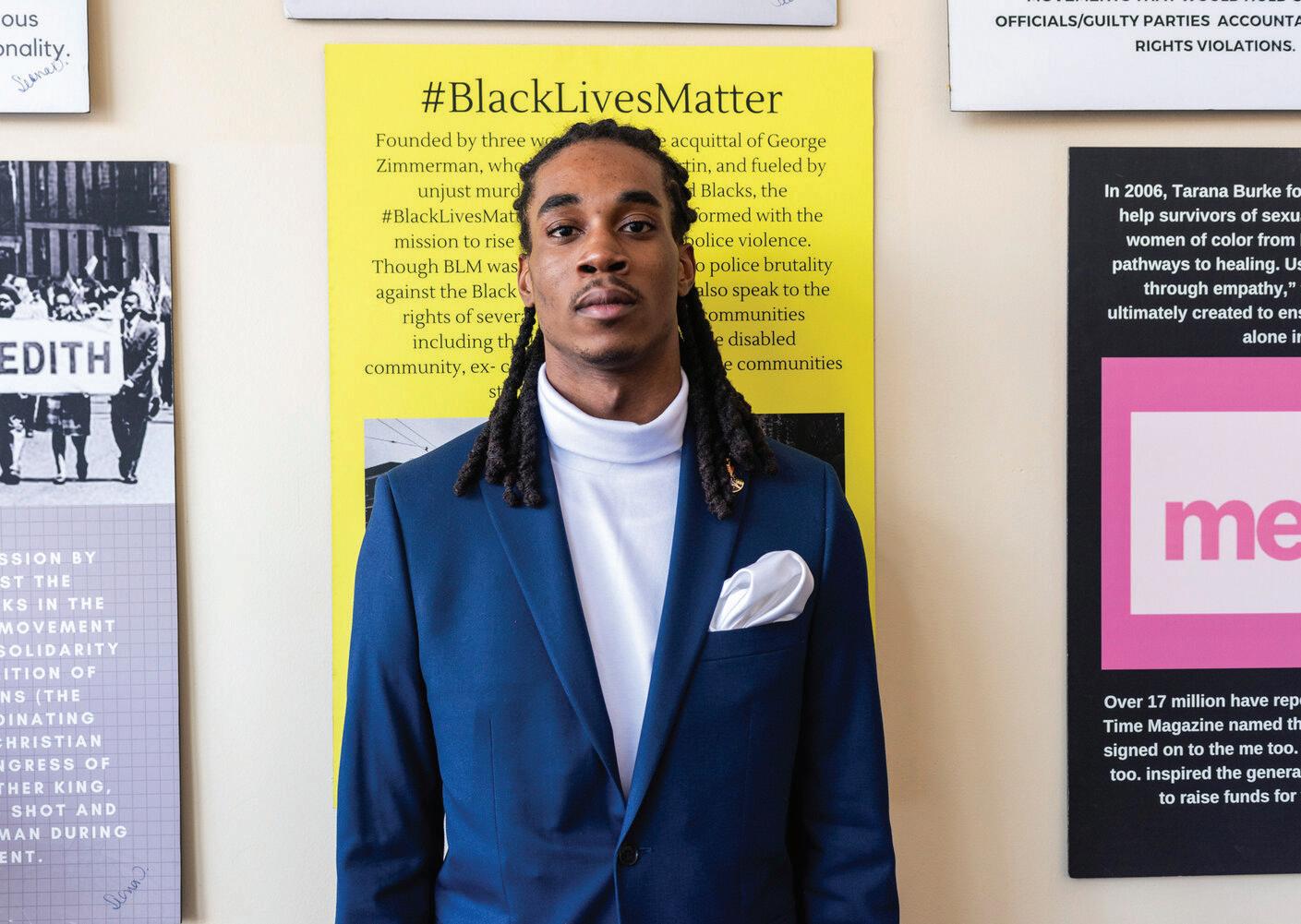
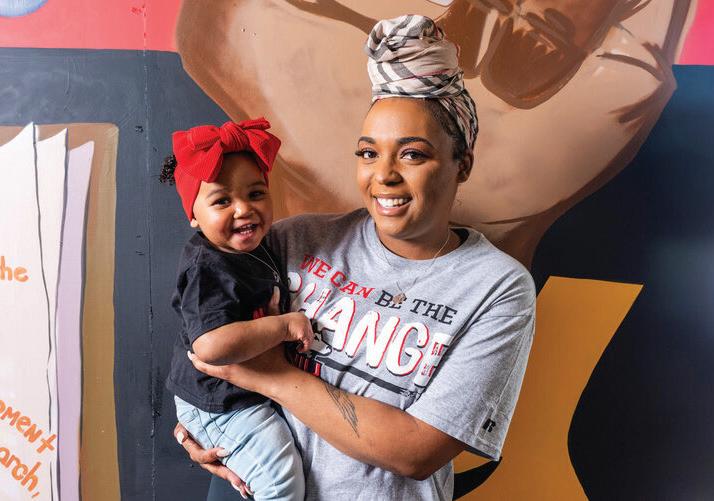
“The Dean of the College of Visual and Performing Arts had seen this in a New York Times article in Minneapolis where they had a lot of transition in their community and folks that know one another as the faces of their community,” Groce said. “We loved the idea of that, but we want to know what a DeKalb version would look like. We thought of the buses that move throughout the entire community, so we found an amazing photographer and we engaged students to do some learning and work.” Groce noticed the students were the ones who thought to capture community members in a place and in a way they felt they belonged. “It was an incredible project, and we were able to do it as a moving exhibit throughout the community where that exhibit will continue,” Groce said. “It’s kind of connected now to the curriculum in photography.” The moving art exhibit lives online at belongingdekalb.com, and Groce noted they will continue to grow the online presence of the moving exhibit so that interested parties can learn about the faces while visualizing the context.
“You may not know the picture of the older woman wearing an oxygen mask with pink hair in Gordon’s Hardware feels like she belongs in Gordon’s Hardware,” Groce said. “But you can see thoughts and emotions that they all belong here.” After the success of Faces of Belonging, the committee sought to take it a step further, questioning other possible media for change. “The photographer had asked each subject three questions – we didn’t end up using the content from those, but the questions and stories were great,” Groce said. “That inspired the concept of another format where someone could tell their own story in their own voice, and thus Voices of Belonging was born. We partnered with WNIJ, a local NPR radio station. Their producers are phenomenal at being able to capture audio content.”
WNIJ used the same three questions the photographer originally asked: what brought you to DeKalb, what has been your experience with a sense of belonging, and what would you like to see next?
In an effort to capture the most organic response from their interviewees, they decided to go to community events and invite folks there to talk about belonging. “They are extemporaneous, and they are The Voices of Belonging exhibit will be on display unscripted,” Groce said. “It is meant to be a bit of a benchmark for our community as we begin the work to coat Kishwaukee create a culture of belonging.”
Community The Voices of Belonging audio exhibit College in the fall. features 11 interviews, as well as a littleknown recording of Dr. Martin Luther King Jr. found by a public radio station on the floor of a library in Ohio.
“He is speaking to a high school in a clearly prepared speech, but you can tell he’s talking to students,” Groce said. “There is a very honest tone to it where he talks about being tired of walking by the front seat of the bus every day and he says one day he will sit there and feel like he belongs because he said, ‘I belong there, I belong.’ I hope, in the future, we’re able to gain the trust of more of those folks that don’t always feel like they belong and give space to even more of those voices.”
Each photograph in the exhibit features the subject’s quote in their own voice. Visitors are meant to hear their story on the subject’s terms, learning more about their experiences in the community.
“I think it’s important to our world to do this, but we start where we are and for me, personally, the work of Voices of Belonging is so vital because it is your story in your words and your experiences and no one can take that from you,” Groce said. “Giving respect and life to that story is incredibly important as we begin to do the hard work together, co-creating.”
As the movement continues to grow in DeKalb, the community will continue to have healthy, productive and eye-opening conversations about what it means to belong in the place they call home. Right now, the committee is working on a new way to illustrate more stories of belonging and othering.
“We are working right now on that next format where members of the community can submit their words of belonging in a story, a poem, spoken word – in whatever way to answer those three original questions,” Groce said.
BELONGING Voices of
